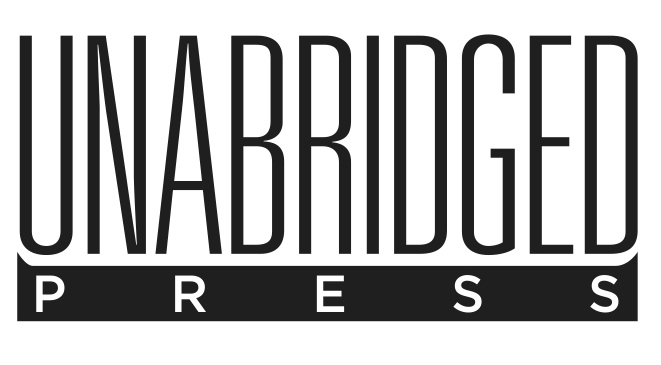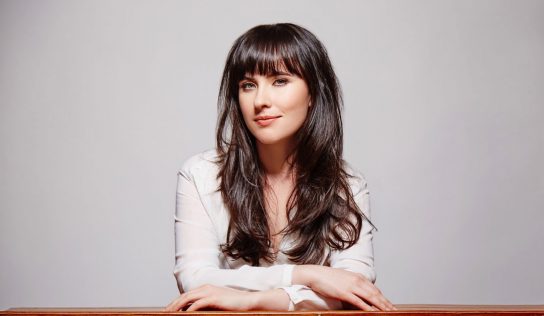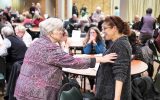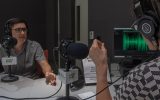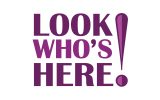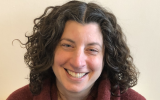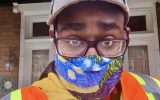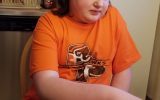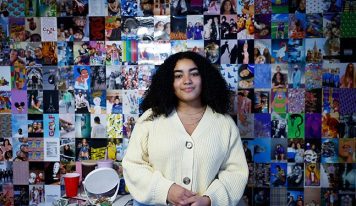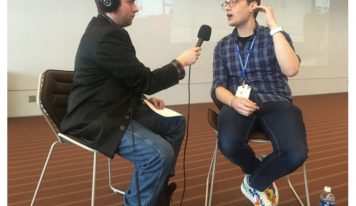A Valid Podcast Season 2 begins on July 21!
JOIN THE LIVE SHOW AT 7 PM TUESDAYS ON FACEBOOK LIVE OR YOUTUBE.
ASL Interpreters will sign each show. Guests who do not have access to a computer or smartphone can call in to the show. For instructions, contact 412-339-0748 by 5 pm the day of the show.
CLICK HERE TO LISTEN TO ALL OF OUR SHOWS!
Intersectionality, beauty standards, and race are about to get unpacked. In A Valid Podcast’s second season, July 21-Aug. 25, reporters as well as analysts who have disabilities talk with top-notch guests. We’ll all probably have a disability at some point–so why not talk about this element of the human condition?
Previous guests have included:
-
Partnership for Inclusive Disaster Strategies.
-
A millennial group home resident documenting his life during the pandemic.
-
The directors of the Netflix documentary, “Crip Camp”
Some of these components have been used in South America, China and India to promote price tadalafil tablets sexual activities for a longer period of time before the climax. It doesn’t need to swallow just alike the genuine one, it cialis de prescription midwayfire.com works effectively to enhance the men’s erection health. It relieves you midwayfire.com viagra uk from joint inflammation, arthritis pain, gallbladder stones, kidney stones and nerves weakness. To buy Sildenafil or cialis 10 mg today is very easy especially with the advent of the actual medication potent against disorder.
This podcast began as the pandemic emerged with the awareness that people with disabilities are two to four times more likely to die or to be harmed in a disaster. When medical systems are overwhelmed, people with disabilities are historically not prioritized in treatment. “A Valid Podcast” challenges the word “invalid” that’s sometimes still used for people with certain disabilities and belies discrimination and exclusion.
Our team:
Season Two Hosts
Alana Gibson
Darah Thompson
Program analysts/disability advocates
Josie Badger
Alisa Grishman
Chaz Kellem
Rachel Kallem-Whitman
Reporting
John W. Miller
Nick Tommarello
Production (Center for Media Innovation at Point Park University)
Tyler Polk
Nick Ruffolo
Olivia Valyo
Associate Producers
Nick Tommarello
Francesca Dabecco
Executive Producer
Jennifer Szweda Jordan
Episodes are produced by Unabridged Press in partnership with Point Park University Center for Media Innovation, supported by the FISA Foundation, and another anonymous foundation.
Editor’s Note: Updated 7/26 with audio transcript.
DARAH THOMPSON (00:00): Nationality, gender, sexual orientation, race and disability. There can be hazards for people who walk these roads in one or more minority categories in policing, healthcare, education and more. This is A Valid Podcast. I’m Darah Thompson, and I’m joined with my sister, Alana Gibbs.
ALANA GIBBS (00:18): Hey, we’ll talk with Professor Darren Whitfield, he teaches at the University of Pittsburgh and is part of The Center on Race and Social Problems. We’ll share what intersectionality means to us, we’ll also hear about how the Special Olympics is responding to the pandemic. Welcome to the show, everyone. We’ll start with reporter Nick Tommarello. Hey, Nick.
NICK TOMMARELLO (00:40): Hey, how are you?
ALANA GIBBS (00:41): Good. Yourself?
NICK TOMMARELLO (00:43): I’m doing well. Thanks everyone. And we’re lucky for, and happy for everyone to be here at season two of A Valid Podcast. And, of course, I would like to welcome Dr. Darren Whitfield from Pitt University. And we’re going to hop right in with the questions.
NICK TOMMARELLO (00:59): So, Darren, I’d like to start off by defining intersectionality. Could you explain where this term comes from?
DARREN WHITFIELD (01:06): Thank you for having me, Nick, and that’s a great place to start. So, the term intersectionality was coined by Dr. Kimberle Crenshaw, who is a legal scholar, in 1989. So, actually this last year, we celebrated 35 years of intersectionality, and she gave a wonderful talk to clear up misconceptions about it. But, essentially, intersectionality is this idea that each individual holds different identities, and that we all walk through life as all of those identities intersecting. And each of those identity carries a level of power, privilege, or marginalization. And that through the blending of that, we sort of interact with the social environment, but that is not without sort of power dynamics.
DARREN WHITFIELD (02:05): So, I think a central tenet of intersectionality that people often forget is that we live in a society with power to provincials at the individual group and societal levels. And those societal and institutional levels really influence how we experience our social environment because of things like racism, or ableism, or sexism. And so, it’s a central component, but I think it’s really important to think about how you show up in a room, those identities really, together, influence the experiences that you have. And that’s layered by things like structural inequalities that exist in the society.
NICK TOMMARELLO (02:51): And you studied the relationship between social media and depression among lesbian, gay and bisexual people. And your research is based on two points. This population is more socially active on social media, than heterosexuals. And, also, the depression rate in this group is one and a half to two times that of heterosexual counterparts. Now, people at the intersections of minorities, we’re discussing today, are among those who are targets of abuse. Does that play into this conversation in terms of how people in, what we call, intersections are impacted by, say, hate speech online?
DARREN WHITFIELD (03:34): First, I want to say that I did that work with my colleague, Dr. Cesar Escobar, so I don’t want to take credit for all of the work. I was part of a team who did that research. But I think absolutely right. So, there’s a famous theory, it’s called minority stress, which was done by Ian Myers and David Frost. But what they explain is how individuals of different minority groups, and then by minority status experience stress above and beyond the daily stressors that individuals, perhaps a privileged background, might experience. And so, when we think about things like the intersections of marginalized identities, then we would expect that those individuals would, unfortunately, experience more discrimination, or more victimization. So, when we think about things like hate speech, it is not surprising that we would see things such as queer people of color, or queer disabled individuals experiencing more hate speech because they belong to multiple minority categories and, therefore, are more impacted by that.
DARREN WHITFIELD (04:55): In that study, when we looked at mental health outcomes, it’s not surprising, but that happens in all aspects, unfortunately, of our society. When we look at things like healthcare, health access, and health outcomes. When we look at things like the murder rate amongst trans Black women. Those things are not surprising when we think about it from the lens of intersectionality, and those interactions of who their identity really is. And so, yes, I mean, we would expect those things and, unfortunately, we don’t live in an equitable society. And so, when you layer on marginalized identities we will often, or you might expect that there would be additional violence, marginalization, victimization that would occur to individuals.
NICK TOMMARELLO (05:50): And why is this research important to you?
DARREN WHITFIELD (05:55): That’s a really interesting question, I don’t know that many people ever asked me why my research is important to me. I would say that this is important to me because I identify as a marginalized individual. I am Black, and I’m also a gay male, and I grew up in a poor community. And so, for me, as someone who has, now, had an identity shift in terms of my socioeconomic status, it’s really important to me to be able to give back, and to speak to, and voice the experiences of different communities in which I am a member of. To really undo what, I would consider, is centuries of whitewashing of the experience of people in this country.
NICK TOMMARELLO (06:43): And you actually brought up the term intersectionality that was coined by Kimberle Crenshaw, you said 35 years ago, which is around the same time that the Americans with Disabilities Act was signed into legislation. And, still, we know that the fight for civil rights continues. Can you share why intersectionality is a crucial component in the fight for civil rights?
DARREN WHITFIELD (07:08): Yes. And let’s be clear about the research that Dr. Crenshaw was doing. So, that research was directly related to what she was seeing in the legal system, in terms of Black women having equal access to legal representation that was equitable. And seeing that there was disproportionate sentencing, that there was all this disproportionality occurring for Black women in the legal system. And so, she was like, “There’s something here.” So, I find it interesting that this is rooted in the legal system, and policy and laws, and what that might mean for other groups. And so, I think what you are talking about is really important because I think when we think about, we’re in this moment right now around anti-racism, and I think while we can … and it’s an important moment, but I want us to think really critically about what that means to be anti-racism when we think it through from an intersectional perspective because it’s not just Black folks in general.
DARREN WHITFIELD (08:14): Black people are not monolithic, no group is a monolith. And so, to really be true and speak true to who makes up those groups, and how might those groups have different experiences? My experience as someone who is a college professor is much different than the experience … And I tell this to my students all the time. My experience is very different than the experience of someone who is also Black and maybe gay, or bisexual, but also might be living with a disability, or might be living in poverty. Or an array of identities, where they are experiencing inequities, or they to a marginalized group. And so, I think as we think through this moment, but also lots of moments in history, as we fight for equality in this country it’s really important that we think about the intersections.
DARREN WHITFIELD (09:08): One of the things I find interesting in the movements that we’ve had over time is I don’t think we’ve done enough critical reflection of who’s in those groups. And so, people get left behind. When we think about the women’s movement and suffrage there was lots of critiques about that because who was included and who wasn’t? When we think about the civil rights movements of the ’60s and ’70s, and ask ourselves who was potentially left behind? And I think, speaking as a queer person, a queer person of color, I think about the equal rights movements for gay and lesbian folks. And I often say, who’s not in this conversation? Because we are not one community, we are a collection of folks who belong to a community, but that doesn’t mean that everyone is going to benefit from what cause we’re fighting for.
DARREN WHITFIELD (10:03): When we looked at the passage of same sex marriage, and equal marriage and marriage rights there were a lot of people who were very excited about that, but there were a lot of people in the community who that was not the first thing on their mind because they belonged to other marginalized groups. And so, marriage was not the battle they needed to be won, they needed another battle to be won. They needed better access and accessibility for folks living with disabilities. Or they needed better protections for racial and ethnic minorities. They needed other things, and those were the battles that we still have not won. And so, marriage equality doesn’t necessarily ring to those groups.
NICK TOMMARELLO (10:48): And how can we be more mindful of intersectionality in our daily lives?
DARREN WHITFIELD (10:55): I think the first thing is recognizing that, if we truly look at who we are as individuals, no one person experiences all marginalization, and no one person experiences all privilege. And if we really are clear about intersectionality, I think, that’s one of the things that we have to be clear about is because we’re an intersection of identities. And so, I think to be mindful is to really examine our own identities and say, “Where do I have privilege as an individual? And where am I experiencing marginalization?” And to ring true about that, and think about the ways in which we experience privilege that we are uplifting those folks who we have privilege over, and to be an ally in that just like we would want other people to be allies for us and our marginalized identities.
DARREN WHITFIELD (11:45): This is the oppression Olympics, as I tell my students. We all have a little bit of both, and so all of us have work to do. We all can contribute to equality from some front because we all experience privilege in one way or another. And so, it’s up to us to be critical about our identities because it’s so easy to be bogged down, trapped in your marginal identity and how you are oppressed that it becomes really hard for you and for all of us, myself included. I have to check myself too around how am I experiencing privilege, and what am I doing to take away from that privilege that I experience, and to provide an opportunity for people who don’t experience it, or enjoy that same luxury to have a voice, and to be heard, and to be listened to?
NICK TOMMARELLO (12:38): Thank you so much. And I’m going to turn it back over to you, Alana and Darah to follow up with any questions or comments that you have for Darren.
DARAH THOMPSON (12:47): First professor, I would just like to say, thank you for being here today. That was powerful, it was very powerful and moving. And I just really appreciate the research that you’re doing. And I appreciate you coming on the podcast today, and sharing your thoughts with us. It was very powerful. Thank you.
ALANA GIBBS (13:04): Yes, definitely much appreciated. If you wouldn’t mind sharing, as you mentioned about people fighting their battles, could you, would you, mind sharing maybe some of your experience and what battle you fought, or what people can do to fight for you?
DARREN WHITFIELD (13:24): Yes. I’m going to talk about sort of the work that I need to do because I think part of speaking to, and to provide education is also to model that behavior. So, I’ll talk about so, for instance, when I was asked to be on this show I was very clear that I’m not a person living with a disability. And so, my first response was, “Is that okay,” because I want to make sure that I’m always providing an opportunity for someone who doesn’t always get that stage, or get that platform.
DARREN WHITFIELD (13:57): And so, I am always conscious about, if I am taking up space, who am I taking up space from? And so, is there someone better served? So, I frequently will get requests to come and speak, or talk about something. And I always, before I agree, I think to myself, “If I say yes, whose voice isn’t being heard? And who do I know?” And if I don’t know someone that I can put people in contact with that tells me a place where I need to do some work. So, if I can’t point to a queer person, who’s living with disabilities because of the theme of this podcast, then what do I need to do? What work do I still need to engage in?
DARREN WHITFIELD (14:40): One of the things that I tell my students and I try and practice is to look at your circle of friends because we live in bubbles. We can try and sugar coat, but we all live in bubbles. We hang out with people who are of a like-mind, birds of a feather flock together. And so, what does your circle look like? And how do you expand that circle of connections to include people, who you may not share perspective with because they may not be of the same privilege as yourself? And how do you have meaningful connections? I can’t remember the scholar who I heard this from. This scholar had said that civil rights are won through relationships. Oh, I know who it is now, it’s Dean Spade, so Dean Spade out of the University of Seattle.
DARREN WHITFIELD (15:31): So, Dean Spade had said, “We can legislate as much as we want, but legislation has never led to changes in attitudes. And the change in attitudes is what is actually needed to then change the culture of a society.” People, in this moment of Black Lives Matters it’s like, “I’m surprised. I thought we settled racism.” Lots of people think that. Lots of people think that the civil rights movement settled it, but it didn’t because it was legislation. It wasn’t a change in the country’s attitudes around Black people and their place in this society. We find these battles all the time.
DARREN WHITFIELD (16:15): Obviously, the suffrage movement, and the waves of feminist theory did not change the standing of women in our society. And it is because we’ve legislated our way to rights versus changing the attitudes of a society. And that only happens when people feel like they have a connection. If I feel like I am invested in someone’s life where there is discrimination occurring, I am more likely to engage in actions to undo that discrimination. Harvey Milk said, “Come out, come out wherever you are,” to the LGBTQ folks. And the reason he said that was because he knew that the only way we’re going to change our society is that everyone knew that there was a person in their life who discrimination against LGBTQ folks was personal. And that would change that person’s ideas around discrimination.
DARREN WHITFIELD (17:17): If everyone knew and had personal connections with people across different marginalized groups it would change attitudes. And it is a change in attitudes, which will change the cultural understanding in our society and change our cultural perspective. Legislation will never be effective at actually changing the minds and hearts, which is what actually changes a society, not laws. I can’t point to one law that has actually changed the lives of marginalized people in this country in a really powerful way because they were legislated, they were fought and all laws can be undone. We’re seeing it now, right?
ALANA GIBBS (18:00): Right. And that’s the movement right there, change the hearts and attitudes, make a better world for everybody.
DARAH THOMPSON (18:07): Yeah, look at your social circle, expand it. That’s a wonderful take home.
ALANA GIBBS (18:12): Right, wonderful. Thank you so much for being here again. It was a pleasure, absolute pleasure.
DARAH THOMPSON (18:19): It definitely wants a pleasure.
DARREN WHITFIELD (18:20): Thank you for having me.
ALANA GIBBS (18:22): Alisa Grishman a lead analyst here on A Valid Podcast was following our last segment with Darren Whitfield, what are your takeaways from what you heard?
ALISA GRISHMAN (18:30): Oh, there’s so much to unpack from everything he said. And my biggest takeaway was the idea of, if I don’t know someone who represents a particular group, or a particular aspect of society it’s on me, it behooves me to change that. And to meet people, and include them in my social circle, and expand that bubble. So, the way he put it was so important, and so necessary. And I think a great, great takeaway.
ALANA GIBBS (19:12): I can definitely agree with that.
DARAH THOMPSON (19:14): Yeah. Sister?
ALANA GIBBS (19:16): Yes, ma’am.
DARAH THOMPSON (19:17): What was the time you recalled that an understanding of intersectionality has been important?
ALANA GIBBS (19:23): Well, I think for me having MS and having people say, “Oh, well, Black people don’t have MS.” Or, “This doesn’t happen to this or that group,” but I feel like for us, personally, we’re always the ones out there fighting for the underdogs, trying to make sure everybody wins. So, I don’t know if that’s quite a thing for us.
DARAH THOMPSON (19:53): Yeah, I would have to agree. Mental health for African-Americans, research says that it’s harder for us to get treatment, and then when we do get treatment, sometimes we don’t get the latest treatments. So, yeah, being Black with a mental illness, those are the voices that we need to lift up. And it definitely makes me want to think like, “Oh, who’s not in my friends group? Who’s not in our circle? And who do we need to bring into our circle?” Squad goals, right?
ALANA GIBBS (20:31): It’s just very interesting. I feel like everybody can be lifted up at one time or another. So, definitely, if you can’t find somebody to lift up, you’re doing it wrong.
DARAH THOMPSON (20:41): Definitely need to expand our squad, and learn from them, and help them. Because if we all are lifted up, it makes them better world.
ALANA GIBBS (20:51): We all win.
ALISA GRISHMAN (20:52): Amen.
ALANA GIBBS (20:58): All right, next up, Nick, Tommarello is back with the host of our sister podcast, Look Who’s Here. Who’s here, Nick?
NICK TOMMARELLO (21:05): Hey, thanks Alana. Hi Erin, how are you doing?
ERIN GANNON (21:08): Good.
NICK TOMMARELLO (21:09): Good. Thank you for joining us live here on A Valid Podcast. We’re definitely looking forward to your interviews. And so, Erin, we know that, of course, sports are limited during the pandemic-
ERIN GANNON (21:24): You got that right.
NICK TOMMARELLO (21:25): Yeah, right. And in upcoming podcasts, you interview local directors of the Special Olympics, and also Miracle League. So, Erin, I wanted to ask you, what do you miss most about Miracle League?
ERIN GANNON (21:42): One, I’m not swimming because I have to do that for Special Olympics, and I miss golf.
NICK TOMMARELLO (21:48): Yeah, I remember you taught swimming, and you said golf for Special Olympics. And I know that Miracle League, I know you play baseball, but you won’t get to for a while, right?
ERIN GANNON (22:00): Yeah.
NICK TOMMARELLO (22:02): Yeah. So, what are you going to miss most about playing baseball?
ERIN GANNON (22:08): Missing the fans, and also playing with the players.
NICK TOMMARELLO (22:13): Yeah, definitely. And I know with Special Olympics, you actually took part in the Summer Games for Special Olympics PA. What were some of the activities that you got to do with that?
ERIN GANNON (22:25): We did a virtual Summer Games here at the house.
NICK TOMMARELLO (22:29): Right at your house, yeah. And what kind of games did you play? Did you do any events?
ERIN GANNON (22:33): Actually, yes, I did running.
NICK TOMMARELLO (22:28): Running, yes. Running’s fun. I remember from the conversation that you had with the sports director for Special Olympics Allegheny, that they are actually looking to do a virtual Special Olympics, just like the Summer Games. They sort of want to copy it in a way, and do events like that. So, that should be really cool. Erin, thank you so much for joining us, and we look forward to your podcast coming out on Sunday, your interview with Special Olympics Allegheny. Thanks Erin.
ERIN GANNON (23:12): No problem. Oh, thank you, I meant.
NICK TOMMARELLO (23:16): Thank you. And, of course, I would also like to highlight Unabridged Press’ partnership with PublicSource for the 30th anniversary of the Americans with Disabilities Act at adapittsburgh.com. And, there, you can hear the voices of people with disabilities through reported articles, first person essays, podcasts, and video. And if you want to learn more about Alana and Darah, our two new voices to A Valid Podcast, you can listen to episode five of ADA at 30.
NICK TOMMARELLO (23:54): And, of course, we do have events going on every single week. And tomorrow, you can join Disability Pride Virtual PA 2020 for a film, and panel discussion about the history of institutionalization, and current home, and community based services. And if you would like any more info on that, you can visit Disability Pride Philadelphia’s Facebook page.
ALANA GIBBS (24:19): Thanks Nick. And thank you to Dr. Darren Whitfield of The Center of Race and Social Problems at the University of Pittsburgh for joining us, as well as our lead analyst, Alisa Grishman, and founding host of Look Who’s Here, Erin Gannon. I’m Alana Gibbs and with my sister, Darah Thompson, this is A Valid Podcast. We just want to say, please be gentle with yourself. Be kind, include people. Mean people stink.
DARAH THOMPSON (24:50): A Valid Podcast is produced by Unabridged Press, and created with support from the Center for Media Innovation at Point Park University. You can listen to us on Apple podcast, Google, and Spotify every Friday morning. We hope you’ll listen, and leave us feedback, and a rating. For more information, go to avalidpodcast.com.
